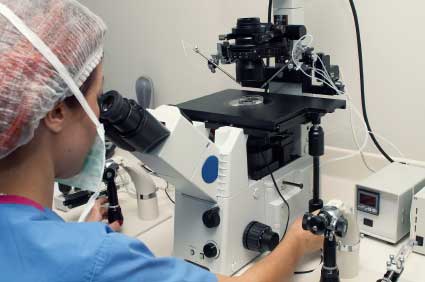Introduction:
The employment of computer and information systems trained people is expected to grow faster than average over the next decade. Managers are usually selected from those who have learned advanced technological knowledge while working in a computer related occupation. The medical information systems manager will be highly educated and trained with excellent communication and administration skills. Organization of the IT program for any company or industry is critical to maintaining a competitive edge in today's world.
The medical office IT Administrator will most often work with remote IT Systems Managers to solve problems relating to the technology of whatever system is being used.
Reasons for the rapid growth in this area include the need for advanced networking to supervise, monitor, and oversee offsite employees. Networks are continuing to expand and the medical office IT Administrator must keep abreast of the latest technologies available. In smaller offices, the medical secretary may double as the office IT Administrator in addition to other duties.
QUALIFICATIONS
Ideally, the medical office IT Administrator will have completed courses in computer technology in addition to any other education and training in the medical field. The IT Administrator must be computer literate and comfortable working in that environment. In the medical office, the IT Administrator may work with a number of IT Systems managers from large network sources. Insurance companies and government agencies will have their own IT managers.
DUTIES AND RESPONSIBILITIES
- Installing medical related software programs and training the administrative staff on their use. The IT Administrator, as the computer system administrator, will be the only person who can make changes on any program. This prevents unskilled computer operators from accidentally making a change that could crash the entire program.
- Maintaining security on the medical office computer system. This includes the installation and upkeep of anti-virus, anti-spyware and adware software programs.
- Installing hardware onto the system. As with the office computers, printers, and all other hardware, the IT Administrator is responsible for the maintenance and upkeep of the equipment.
- Training and problem solving with other medical office staff. The IT Administrator is the point of first contact whenever there are questions about individual software programs.
On a much larger scale, the IT Systems Manager will be involved in all phases of internet operations for a company. Within the company, the IT Systems Manager will direct the work of systems analysts, computer programmers, support specialists and others involved in computer-related occupations. In short, this is a much more detailed position than simple administration of office computer procedures. These highly technological positions are found in large hospitals, insurance companies, and health-related government offices, and medical software development companies.
In spite of the downturn in the computer technology industry of the last decade, it had nothing to do with the need for IT specialists. In a healthcare facility, it is essential that the system is maintained and running at all times. In the past, if a medical secretary found her electric typewriter suddenly out of order, she could pull out the old manual typewriter and keep on working. Today, however, if the computer system is not working, everything comes to a complete stop. Important patient information may not be accessible on those occasions not to mention the sums of money that are lost during such a breakdown. In the office, then, the IT Administrator is poised to correct the situation immediately.
The duties of a medical office IT Administrator are much less of a highly technical nature than the IT Systems Manager in a larger operation. However, the IT Administrator needs to understand the workings of the office network as well as the proper nomenclature in the event an IT Systems specialist needs to be contacted. The IT Administrator in a smaller office will be charged with the responsibility of keeping the system running, knowing the contact information for software problems, and maintaining the office network. Physicians and healthcare administrators generally do not have available time to double as the IT Administrator and depend on reliable staff to handle the complex needs of keeping the system running smoothly.
EDUCATIONAL REQUIREMENTS
Most medical offices now prefer that the IT Administrator hold at least a bachelor's degree with additional computer skills training if it was not a part of the degree program such as in a BBA. For the higher positions such as IT Systems Manager, the current expectation is that applicants hold an MBA with technology as a core component.
WORK ENVIRONMENT
As in other medical or healthcare facilities, the IT Administrator can expect to work in a comfortable, well-lighted, and temperature controlled office. The social environment will include highly skilled and professional people. It should be pointed out that being continuously in front of a computer monitor the usual physical problems may occur such as eyestrain, back and neck pain, and carpal tunnel syndrome.
COMPENSATION
Compensation and job security outlooks for IT Administrators are quite positive. Office IT Administrators can command a salary in most major commercial areas in the area of $37,000 to $48,000 per year while IT Systems Managers may receive upwards of $87,000. An office IT Administrator who continues her or his education may find it possible to advance into a much better position with a large IT company. Growth in employment for these positions is predicted to rise steadily between now and 2030.
SUMMARY
Looking at the position of IT Administrator it is clear that the position offers excellent prospects for employment and remuneration. Because it is a highly technological field, higher education is a prerequisite. The chances for advancement depend on the experience of the administrator as well as any further education in computer technology. While the position is both interesting and stimulating, it is not without a certain stress level that only certain types of individuals can handle.

































